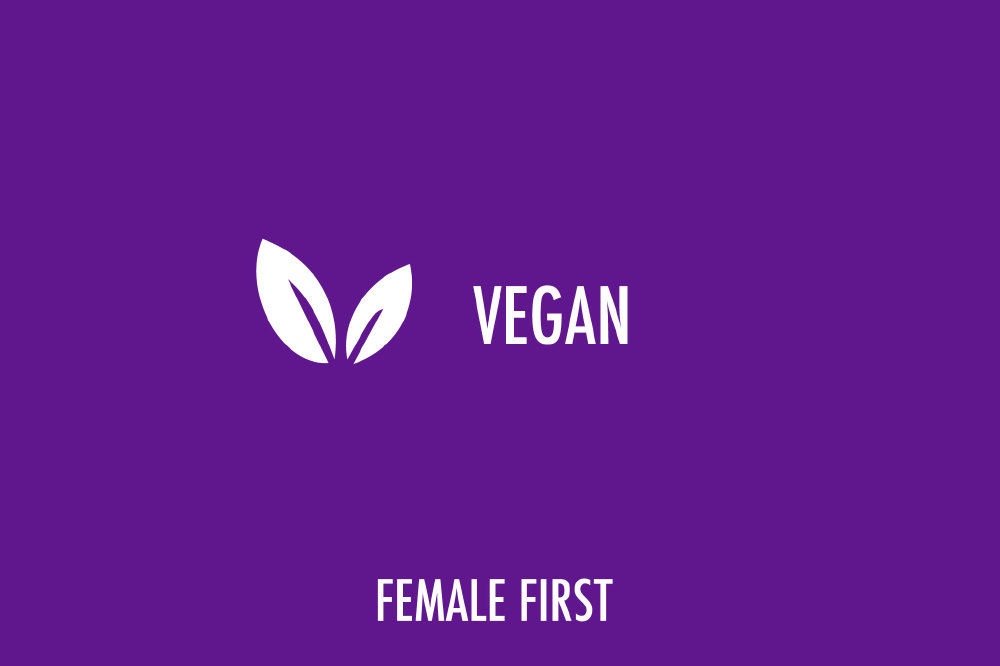As is true of any diet, if the food consumed is not balanced, nutritional deficiencies are likely to occur, which can affect both health and energy levels. Veganism eliminates animal produce from the menu, which means that a vegan diet is in fact more susceptible to being nutritionally poor. However, there is plenty of choice when it comes to vegan specific food, to ensure a nutritionally rich and balanced diet is achieved. Dr Thomy Kouremada-Zioga, Hair Transplant Surgeon at The Private Clinic of Harley Street talks us through her top tips on how to be a healthy vegan:

Vegan on Female First
Iron
Red meat is a great source of Iron, but this is not part of a vegan's diet. It is therefore important as a vegan to ensure you make up for this by eating other Iron rich foods, as well as foods rich in Vitamin C; which dramatically improves Iron absorption. Luckily, much of a vegan diet is plant based. Leafy green vegetables, lentils and fortified foods that make up a large portion of a vegan diet are rich in Iron. Iron is an essential mineral for several reasons including that it helps to make red blood cells which carry oxygen around our bodies. Iron is also important for healthy hair quality and hair growth. As a vegan if you feel you are not getting enough important vitamins and minerals through consuming these food products, I would advise speaking with a doctor. A doctor can recommend blood tests in order to check the levels of vitamins and minerals and in case there is any deficiency, which supplements you could benefit from taking.
Protein
Protein builds and repairs muscle and often the elimination of animal protein as part of a vegan diet results in rapid weight loss. Weight loss such as this can have negative effects on health, which is why is it important as a vegan you ensure optimum levels of protein intake in the form of nuts, seeds, legumes, fortified cereals and beans.
Lifestyle
Certain lifestyle factors such as excess alcohol consumption and smoking, negatively affect the body's ability to absorb important nutrients. This malabsorption deprives the body of the vitamins and minerals it needs to stay healthy. Because a vegan diet is more susceptible to nutritional deficiencies anyway, is would be wise to avoid smoking and to keep alcohol intake at a minimum.
Zinc and Vitamin B-12
Zinc and vitamin B-12 are sometimes lacking in a vegan diet because they are found in abundance in foods such as beef, pork, chicken and fish. Luckily, as Zinc can be found in a number of plant based food products, it is important as a vegan to eat nutritionally sufficient amounts of these. Vegans can also consume enough vitamin B-12 by eating fortified foods, and by taking a Vitamin B-12 supplement.
Fresh Soy
Soy is one of the most popular meat substitutes loved by vegans and vegetarians alike. However, fresh soy contains inflammatory lectins and Phytic acid, both of which have negative effects on the body because they bind with minerals and prevent the body from using them. This can lead to nutritional deficiencies in the long run and so it is important that fresh soy not be overeaten.
Supplement your diet
As a vegan, if you feel you a lacking nutritionally in some way and are not substituting this adequately through diet alone, supplements such as a multivitamin can be taken. However, it is important to consult a doctor before deciding which supplements to take, and to always strive to maintain a well rounded diet.
www.theprivateclinic.co.uk
Tagged in Vegan

